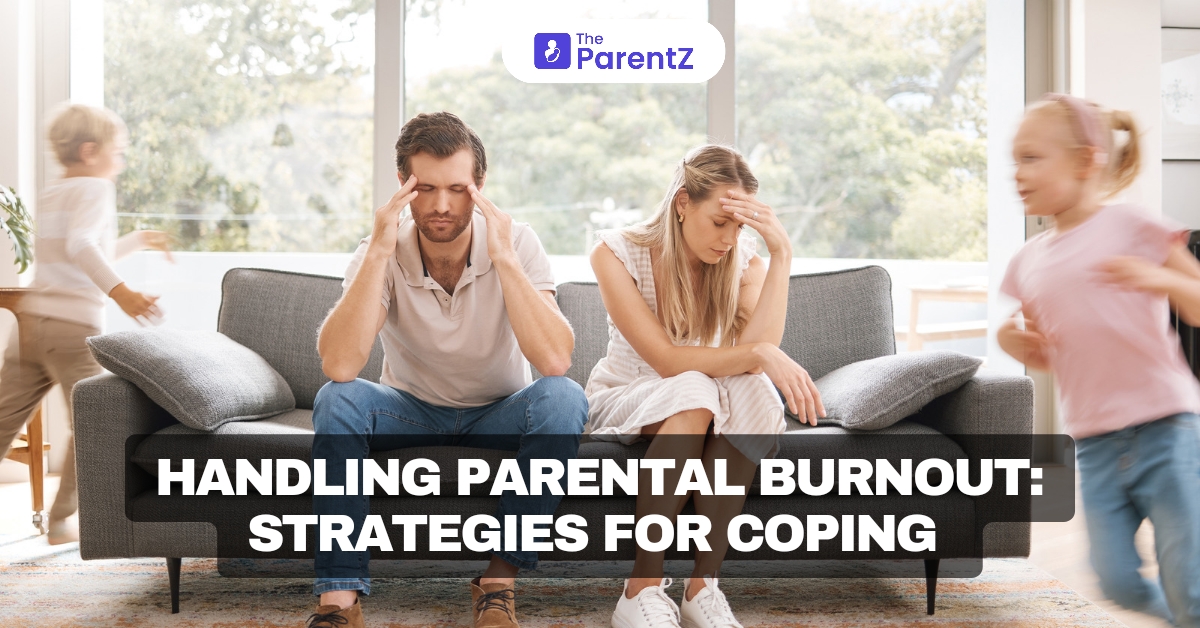Parenting is one of the most demanding roles anyone can undertake. The constant juggling of responsibilities—caring for children, managing a household, and possibly maintaining a career—can lead to parental burnout. This state of physical, emotional, and mental exhaustion affects many parents, often leading to feelings of being overwhelmed, irritable, or even detached from their children. In 2024, with the pressures of modern life intensifying, understanding how to manage and prevent parental burnout is more crucial than ever.
What is Parental Burnout?
Parental burnout is a condition characterized by chronic exhaustion, emotional detachment from one’s children, and a sense of being ineffective as a parent. It differs from everyday stress in that it is more severe and persistent, often leading to significant emotional and physical health issues if not addressed.
According to a 2023 study published in the Journal of Marriage and Family, approximately 12% of parents experience moderate to severe parental burnout. The study highlights that burnout is more common among parents who lack social support, those with perfectionist tendencies, and those who face significant work-life balance challenges.
Signs and Symptoms of Parental Burnout
Physical Exhaustion
- Feeling constantly tired, even after getting enough sleep, is a common sign of burnout. Parents may also experience frequent headaches, muscle tension, or other stress-related physical symptoms.
Emotional Detachment
- Parents experiencing burnout may feel emotionally distant from their children, struggling to engage with them or find joy in parenting. This detachment can lead to feelings of guilt and further exacerbate burnout.
Increased Irritability
- Burned-out parents are often more irritable and short-tempered, finding it difficult to manage their emotions in response to everyday parenting challenges.
Loss of Fulfillment
- A sense of losing satisfaction or fulfillment from parenting is another key sign of burnout. Parents may feel like they are just going through the motions rather than actively participating in their children’s lives.
Reduced Productivity
- Burnout can affect a parent’s ability to function effectively, leading to procrastination, forgetfulness, or difficulty concentrating on tasks.
Strategies for Coping with Parental Burnout
Prioritize Self-Care
- Self-care is not a luxury but a necessity for parents. Taking time for yourself—whether through exercise, hobbies, or simply taking a break—can recharge your energy and improve your mental health. Consider setting aside at least 15-30 minutes each day for activities that you enjoy.
Seek Social Support
- Building a strong support network is crucial in preventing and managing burnout. Connect with other parents, friends, or family members who can offer emotional support or practical help. Joining parenting groups, either in-person or online, can also provide a sense of community and shared understanding.
Delegate Responsibilities
- It’s important to recognize that you don’t have to do everything yourself. Delegate household tasks or childcare responsibilities to your partner, older children, or even hire help if possible. This can alleviate some of the pressure and give you more time to rest.
Practice Mindfulness
- Mindfulness techniques, such as meditation, deep breathing exercises, or yoga, can help reduce stress and improve emotional regulation. These practices can be particularly effective in managing the symptoms of burnout and helping you stay grounded in the present moment.
Set Realistic Expectations
- Perfectionism can be a significant contributor to burnout. It’s important to set realistic expectations for yourself and your children. Understand that it’s okay to have off days and that not every aspect of parenting has to be perfect.
Seek Professional Help
- If burnout is severe and persistent, it may be necessary to seek help from a mental health professional. Therapists can provide coping strategies, offer support, and help you navigate the challenges of parenting without becoming overwhelmed.
Preventing Parental Burnout
Prevention is key when it comes to parental burnout. By implementing healthy routines and coping strategies before burnout occurs, you can maintain a balanced and fulfilling parenting experience. Consider the following preventive measures:
Regularly Assess Your Stress Levels
- Regular check-ins with yourself can help you identify when stress is becoming too much. Pay attention to your physical and emotional well-being and take action if you notice signs of burnout.
Create a Supportive Environment
- Foster an environment at home where open communication and mutual support are encouraged. Sharing responsibilities with your partner and involving your children in age-appropriate tasks can help distribute the workload and reduce stress.
Focus on Quality Time
- Prioritize quality over quantity when it comes to spending time with your children. Engaging in meaningful activities together can strengthen your bond and reduce feelings of parental inadequacy.
Establish Boundaries
- Setting boundaries with work, social obligations, and even with your children is important in preventing burnout. Make sure you have time for yourself and that you’re not overextending yourself in trying to meet everyone’s needs.
Conclusion
Parental burnout is a serious issue that can impact both your well-being and your ability to care for your children. By recognizing the signs of burnout and implementing effective coping strategies, you can protect your mental health and create a more balanced, enjoyable parenting experience. Remember, taking care of yourself is the first step in being the best parent you can be.





Be the first one to comment on this story.